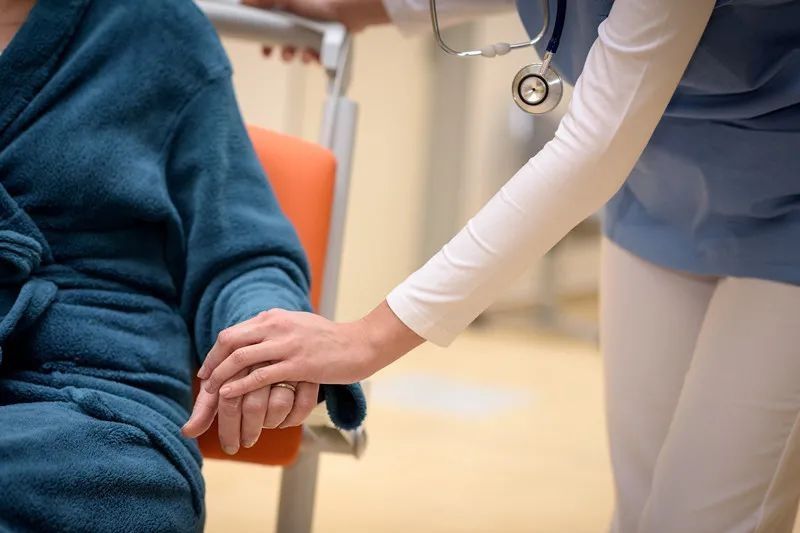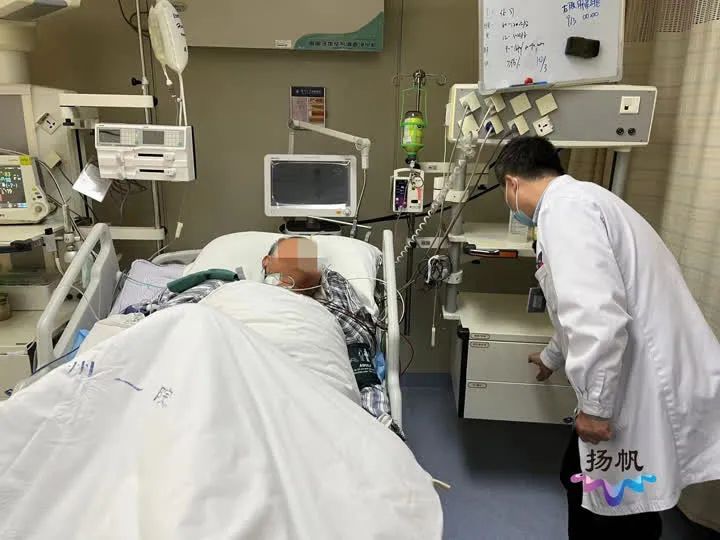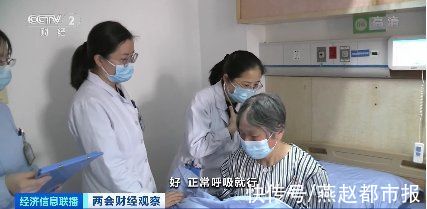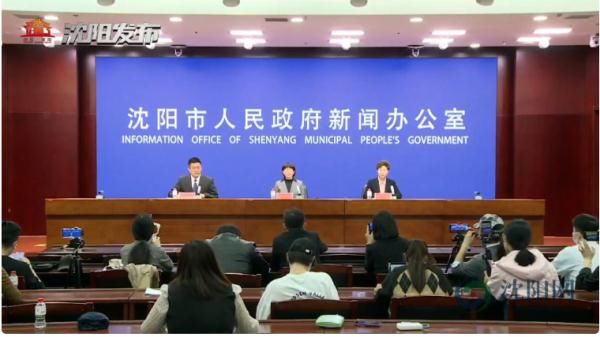內容目錄
Today (March 10) is the 17th World Kidney Day. On March 9th, Luo Qun, director of the Nephrology Center of Ningbo Huamei Hospital (Ningbo Second Hospital), University of Chinese Academy of Sciences, and chairman of the Ningbo Medical Association Nephrology Branch, visited the live broadcast room of the Yongshang Famous Medical University Lecture Hall and shared with you how to protect the kidneys healthy.

>>>
The kidneys filter a tub of blood every day
Produces about 1.5 liters of urine
Director Luo introduced that the kidney is a very important organ of the human body. It can remove excess water, filter the blood, eliminate metabolic waste, and form urine to be excreted from the body.
In order to maintain the stability of the body’s internal environment, the kidneys filter up to 180 liters of blood every day. After being reabsorbed and concentrated by the renal tubules, about 1.5 liters of urine is generated and excreted.
The kidney also has an endocrine function, which can secrete erythropoietin to promote the synthesis of hemoglobin; generate active vitamin D to maintain the normal structure and function of bones; it can also secrete vasoactive substances, which play a role in the regulation of blood pressure important role.
>>>
1 in 10 people may have the disease
Awareness is low
chronic kidney disease The incidence is increasing and it has become a global public health problem.
Director Luo mentioned two sets of figures: one is that the prevalence of chronic kidney disease in my country is 10.8%, which means that 1 in 10 people may have chronic kidney disease; the other is chronic kidney disease. The awareness rate of kidney disease is very low, only 12.5%.

The picture has nothing to do with the picture, the source of the picture: Baotu.com
Chronic kidney disease refers to kidney damage , such as hematuria, proteinuria, changes in kidney size and shape, etc., for more than 3 months; or glomerular filtration rate <60ml/min, for more than 3 months.
Director Luo introduced: Due to the extremely powerful compensatory function of the kidneys, even if the function has lost more than 50%, some patients with chronic kidney disease may still have no symptoms or mild symptoms, manifested in the eyelids, face, and lower extremities. Swelling, a lot of foam in the urine, abnormal urine color, etc. When symptoms such as nausea and vomiting, chest tightness and shortness of breath appear, renal function is often severely damaged and irreversible; when it develops to the late stage of renal failure – uremia, patients can only maintain their lives through renal replacement therapy such as dialysis and transplantation.
She regretfully mentioned a case during the live broadcast. Recently, an 18-year-old boy was admitted to the ward. When he came to see the doctor, his serum creatinine was as high as 1000umol/L, his blood pressure was 190/100mmHg, and his anemia was severe. Both kidneys were significantly atrophied. After careful examination of the medical history, I learned that the young man found out that he had proteinuria a few years ago, but because he did not have any uncomfortable symptoms, he did not pay attention to it and did not go to the hospital for treatment. When I came to see the doctor this time, my kidney function had failed, and in the uremia stage, I needed to use dialysis to maintain my life.

The picture and text are irrelevant, the picture source: Baotu.com
>>>
The general population should have routine urinalysis and renal function tests every year
Hypertensive patients, etc. twice or more every year
Due to the insidious symptoms, it is not easy to be detected in the early stage, and chronic kidney disease is often Known as the “Silent Killer”. Director Luo reminded that early screening is very important.
General population: Regular physical examinations should be performed once a year, and urine routine and renal function tests should be carried out.
High-risk groups with diabetes, hypertension, dyslipidemia, gout and other diseases: Regular urine examination, urine albumin/creatinine ratio, renal function, renal ultrasound and other examinations should be carried out. Depending on the condition, check up twice or more per year.
If you already have certain symptoms, you should go to the hospital as soon as possible for a more comprehensive examination.
>>>
Eat less salt
Drink about 1.5-1.8 liters of water every day
How to prevent chronic kidney disease? Director Luo suggested that healthy people without kidney disease should pay attention to the following things:
Reduce salt intake;
Balanced diet;
Quit smoking;
p>
Drink in moderation;
Drink plenty of water, about 1.5-1.8 liters per day;
Do not hold back urine;
It can be in the body If tolerated, maintain 30 minutes of moderate-intensity exercise 5 times a week;
weight control;
avoid colds;
avoid abuse Take medicine as prescribed by the doctor;
Regular physical examination every year, check urine routine and renal function and renal B-ultrasound.
For high-risk groups with high blood pressure, diabetes and other diseases, in addition to the above preventive measures, risk factors (high blood pressure, diabetes, high uric acid, obesity, high blood lipids, etc.) should also be actively controlled. Adhere to drug treatment, and strictly control blood pressure, blood sugar, blood uric acid, and blood lipids within the normal range. Eat a reasonable diet. Monitor urine routine, urine protein-to-creatinine ratio, renal function, and renal B-ultrasound at least once every six months.
Patients who have been diagnosed with chronic kidney disease should actively treat the primary disease, control proteinuria, eat a high-quality low-protein diet, and avoid or promptly correct the risk factors for acute exacerbation of chronic kidney disease. Long-term follow-up and careful treatment are the keys to delaying the progression of the disease and reducing complications.

The picture and text are irrelevant, the picture source: Baotu.com
>>>
A lot of foam in the urine is not necessarily a sign of kidney damage
The red blood cells have a plus sign to determine whether there is hematuria
During the live broadcast, the discussion area under the live broadcast link was also very lively. Director Luo answered questions from netizens one by one.
Netizen: I heard that foam in urine is a sign of bad kidneys. Is this right?
Director Luo: There is a lot of foam in the urine, which may not necessarily mean kidney damage. It is recommended to go to the hospital to check the urine routine and urine albumin to creatinine ratio to determine whether there is proteinuria.
Friends: What should I do if I find that there is a plus sign in the red blood cells in the urine routine?
Director Luo: First of all, it is necessary to rule out contamination. It is recommended to review the urine routine to determine whether there is hematuria; in addition, urinary tract infection should be ruled out. If hematuria is clearly present, the source of red blood cells needs to be further traced, whether it is renal hematuria or non-renal hematuria, urine red blood cell morphology and urinary B-ultrasound can be done, and CT and other examinations can be performed if necessary to help determine the source of hematuria and clarify the cause.
Netizen: The physical examination revealed proteinuria, does it mean that there must be kidney disease?
Director Luo: Proteinuria is generally divided into physiological proteinuria and pathological proteinuria. Physiological proteinuria refers to transient proteinuria that occurs in the presence of strenuous exercise, fever, etc., and there is no substantial renal disease, and follow-up is sufficient. Pathological proteinuria is caused by organic lesions in the kidneys, usually persistent proteinuria. Physical examination revealed proteinuria, and it is recommended to go to a specialist for further examination. Therefore, it is recommended that this netizen go to the hospital to review the urine routine and do 24-hour urine protein quantitative tests.
Chongqing has second-level and above medical institutions in 352 counties More than 90% of hospital visit rate
On March 10, the Municipal Health Commission announced that as of now, the city has 39 Grade-A hospitals and 352 medical institutions above Grade II. Class III hospitals and districts and counties with a population of more than 300,000 are required to set up a second-class public hospital. Within the county…
[Western Youth Science Popularization] Breast B The best time to super check, missed may affect the results
![[Western Youth Science Popularization] The best time for breast ultrasound examination, missing may affect the results](https://p0.ssl.img.360kuai.com/t013b6a9eb56ec34a25.jpg)
Breast ultrasound must be done by everyone. Breast hyperplasia and breast nodules are also common in the examination results. But you found no, every time you go for a re-examination, the size and degree of hyperplasia of the nodules seem to be different. In fact, this is because breast ultrasound examination will be affected by various factors, just like women…
Strengthen Supervision of medical and healthcare institutions
In order to standardize the medical and health service work of medical and elderly care institutions, effectively protect the life safety and physical health of the elderly, and strive to improve the living environment and quality of life of the elderly, from March to September this year, Luodian County Health and Health Bureau organized special supervision of medical and health institutions in the county’s medical and nursing institutions…
Winter melon is full of medicine

Winter squash is a common ingredient in the kitchen and is cultivated all over the country. Winter melon is sweet, light, cool in nature, and has functions of diuretic water and phlegm, clearing heat and detoxifying. It is often used to treat edema, fullness, gonorrhea, cough and asthma, summer heat, carbuncle, prickly heat. It can also remove dark spots on the skin, treat nasal and facial rosacea, relieve Wine, moisturizing the skin, has many effects. Modern research has found that…
Lingqiu County was rated as the national advanced grass-roots Chinese medicine work Unit
A few days ago, the State Administration of Traditional Chinese Medicine named the National Advanced Unit for Grassroots Traditional Chinese Medicine Work and announced that Lingqiu County, Datong City was selected as the county-level National Advanced Unit for Grassroots Traditional Chinese Medicine Work. It is understood that a total of 7 counties in the province were selected. Lingqiu County attaches great importance to supporting the development of traditional Chinese medicine, and will create a national-level advanced county for grassroots TCM work…
” Xian”wu.html”>Be vigilant! The uncle nearly died because he ate this “fresh” food

This article is reproduced from [Hangzhou Traffic 918]; a few days ago, a 68-year-old patient who was poisoned due to improper consumption of Morchella was admitted to the emergency ICU of the East District Affiliated Hospital of Yangzhou University in Jiangsu. save his life. On the morning of the 4th, Uncle Wang and his wife opened a bag of instant morels,…
Oroqen Banner Health and Health Committee carried out the “March 8th” Festival Health Checkup
In order to effectively improve the health level of cadres and workers, enhance work cohesion, and give full play to the spirit of devotion to work and selfless dedication, the Banner Health Committee organized a free health check-up activity on the International Women’s Day on March 8th. From March 9th to March 10th, the participants in the physical examination will work for all the health committee…
3 positive cases, Nanjing just reported
The latest news from the New Coronary Pneumonia Epidemic Joint Prevention and Control Work Headquarters in Jiangning District, Nanjing City: On the morning of March 10, 2022, 2 positive cases and 1 case were found in the nucleic acid test of Shanghai returnees. Close contacts are positive. The city and district epidemic prevention and control headquarters quickly activated the epidemic emergency response mechanism, and the samples were passed through the city…
Every big fish tank needs a purification system, otherwise it will only become a tank of stagnant water. The human body is no exception. Our purification system is the kidneys. 8 liters of blood in the human body passes through the kidneys 20-25 times a day. The reason why we need to keep filtering is because the food and drink we swallow will make the blood composition constantly change, which carries…
Big price reduction! Average drop of 53%

This year’s “Government Work Report” pointed out that it is an important task to effectively protect and improve people’s livelihood, and to promote the centralized procurement of drugs and high-value medical consumables to ensure production and supply. In recent years, the National Medical Insurance Bureau has greatly reduced the price of drugs through measures such as catalog access negotiations and volume purchases, striving to allow patients to use…
From 0 to 12 o’clock today, Qingdao adds local 34+ 63
On March 10, the Qingdao Municipal Health and Health Commission reported the latest data on the epidemic on its website: From 0:00 to 12:00 on March 10, Qingdao added 34 new confirmed cases of new coronary pneumonia and 63 asymptomatic cases. Infected. The full text is as follows: From 0:00 to 12:00 on March 10, Qingdao added 34 new confirmed cases of new coronary pneumonia, 63…
Development Science and technology of traditional Chinese medicine to build a powerful country of traditional Chinese medicine innovation

This article is reproduced from: Life Times Traditional Chinese medicine is a treasure of Chinese civilization. In terms of disease prevention, treatment, and rehabilitation, traditional Chinese medicine reflects its unique advantages and is an important factor in promoting the construction of a healthy China and protecting the health of the people. strength. I not only want to be a leader of the enterprise, but also a Chinese medicine person who is confident and self-improving, and takes on the role of a new…
You really know how to drink water ? Let’s take a look at the 5 ways to drink water that the heart is most afraid of
Original title: 5 ways to drink water that the heart is most afraid of → Is your drinking water healthy? Drinking water too fast, too much, too little, too cold, and too hot are the five ways that the heart is most afraid of drinking water. How to drink water scientifically? It is recommended to ① drink water frequently, three or four mouthfuls each time; ② swallow slowly, not pouring water; ③ drink enough, adults every day…
The itinerary of confirmed cases and asymptomatic infections in Weihai announced< /a>
Source: Xinwang Editor: Fu Yi 2022-03-1013:56:29 Xinwang March 10 (Reporter of this website) According to the official website of Weihai Municipal Health Commission, March 9, 2022 From 0:00 to 24:00 on Sunday, Weihai City reported 7 confirmed cases of new coronary pneumonia and 14 asymptomatic infections. After preliminary…
Taian Municipal Hospital’s Clinical Nutrition Department helps patients lose 20kg in 22 days
Qilu Evening News Qilu One Point Correspondent Zhang Yangshuya Reporter Huo Jiaxing Recently, the Clinical Nutrition Department of Tai’an Municipal Hospital received a young patient suffering from obesity since childhood and successfully lost weight in only 22 days nearly 20 pounds. 26-year-old Xiao Wang has been obese since childhood. Because of lack of daily exercise and uncontrolled diet,…
Shenyang reports 4 new local confirmed cases case increaseInvestigation and control of close contacts

On March 10, at the 44th press conference on the prevention and control of the novel coronavirus pneumonia in Shenyang, He Yan, Deputy Director and Spokesperson of the Municipal Health Commission, and the Municipal Center for Disease Control and Prevention Director Wang Ping made the announcement. He Yan, deputy director of the Municipal Health Commission, announced that from 0:00 on March 9, 2022 to…
The “Menopause Clinic” of Miyun District Maternal and Child Health Hospital3 Open on the 8th of the month
Good news! The “Menopause Clinic” of Miyun District Maternal and Child Health Hospital will open on March 8, 2022! Outpatient time: every Tuesday morning. Location: Room 215, 2nd floor, outpatient building. Scope of diagnosis and treatment: menstrual disorders, irritability, palpitations, insomnia, depression and forgetfulness, recurrent urinary tract infections, joint pain, etc…
There are 8 signals in the body to identify the early symptoms of liver cancer
More than 50% of liver cancer patients are diagnosed at an advanced stage, and the existing treatment methods for advanced liver cancer are not satisfactory. Therefore, early diagnosis and early treatment of liver cancer is the key to cure. Is liver cancer diagnosed at an advanced stage? There are 8 signals in the body to identify the early symptoms of liver cancer Reporter Zhang Yumai 2…
Lianyungang announced the source of yesterday’s newly confirmed cases, released List of important meeting information→

On the morning of March 10, the fifth Lianyungang City Epidemic Prevention and Control Press Conference was held. Chen Zhi, Director of the Lianyungang City Health and Health Commission, gave a briefing on the latest situation of the epidemic. The main points are as follows: 1. 13 new local confirmed cases of new coronary pneumonia and 3 asymptomatic infections From 0:00 to 24:00 on March 9, Lianyungang new…
Exercise only without nutritional supplementation or excess nutrition What harm does inactivity do to the body
Exercise and nutritional supplements are important means of promoting human health, and the two complement each other. If you only focus on physical exercise and ignore reasonable nutrition, it is impossible to achieve the purpose of fitness, or even counterproductive, causing damage to health. Just imagine, constantly burning the body’s calories without good nutritional supplements…



